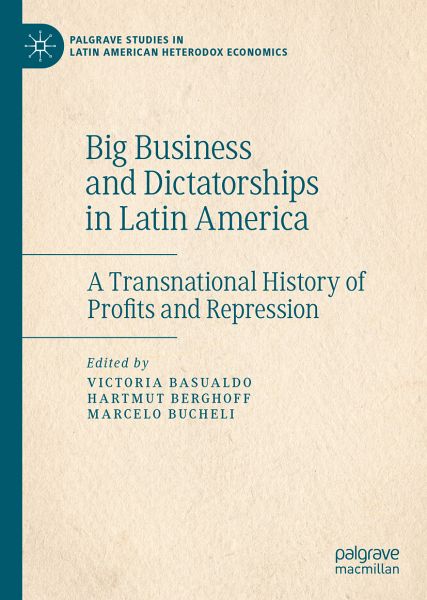
Big Business and Dictatorships in Latin America (eBook, PDF)
A Transnational History of Profits and Repression
Redaktion: Basualdo, Victoria; Bucheli, Marcelo; Berghoff, Hartmut
Versandkostenfrei!
Sofort per Download lieferbar
104,95 €
inkl. MwSt.
Weitere Ausgaben:

PAYBACK Punkte
52 °P sammeln!
This edited volume studies the relationship between big business and the Latin American dictatorial regimes during the Cold War. The first section provides a general background about the contemporary history of business corporations and dictatorships in the twentieth century at the international level. The second section comprises chapters that analyze five national cases (Argentina, Brazil, Chile, Uruguay and Peru), as well as a comparative analysis of the banking sector in the Southern Cone (Argentina, Brazil, Chile, and Uruguay). The third section presents six case studies of large companie...
This edited volume studies the relationship between big business and the Latin American dictatorial regimes during the Cold War. The first section provides a general background about the contemporary history of business corporations and dictatorships in the twentieth century at the international level. The second section comprises chapters that analyze five national cases (Argentina, Brazil, Chile, Uruguay and Peru), as well as a comparative analysis of the banking sector in the Southern Cone (Argentina, Brazil, Chile, and Uruguay). The third section presents six case studies of large companies in Argentina, Brazil, Chile, Colombia and Central America. This book is crucial reading because it provides the first comprehensive analysis of a key yet understudied topic in Cold War history in Latin America.
Dieser Download kann aus rechtlichen Gründen nur mit Rechnungsadresse in A, B, BG, CY, CZ, D, DK, EW, E, FIN, F, GR, HR, H, IRL, I, LT, L, LR, M, NL, PL, P, R, S, SLO, SK ausgeliefert werden.












